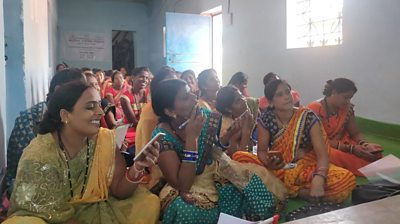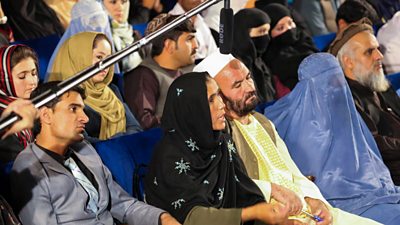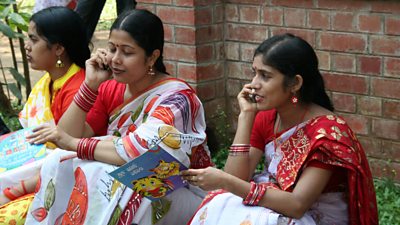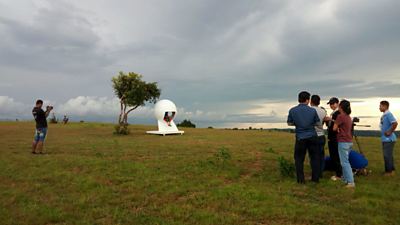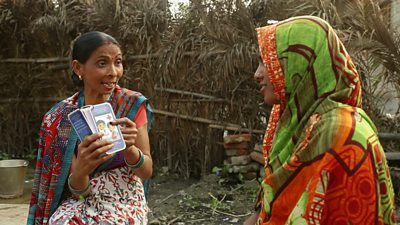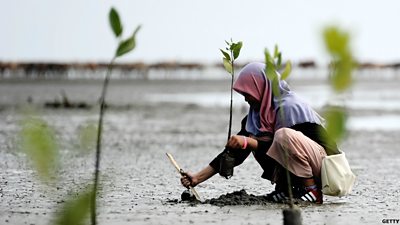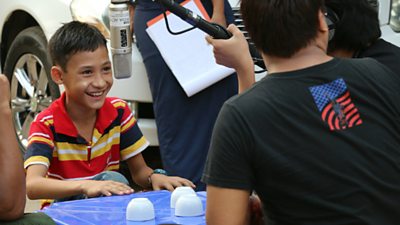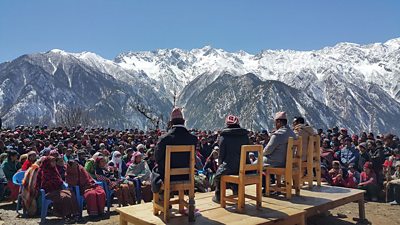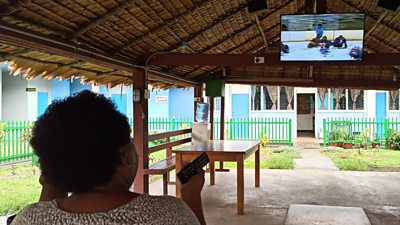Empowering women is critical to achieving social and economic gains - for women themselves, for communities and for societies. Women’s Empowerment Collectives and the Power of Digital: A Research and Learning Agenda is a three-year project to identify how technology can enhance pathways to empowerment in women’s collectives, without worsening inequalities.
There is promise of progress in organising women into empowerment collectives, including self-help groups. In India, where women in 124 million households have been mobilised into 10.2 million self-help groups since 2011, the scale of this opportunity is significant.
The exponential growth of mobile phone use also holds potential for helping women to gain employment, obtain cost-effective health services and education, and increase their income. By 2025, India is predicted to overtake the United States as a “smartphone superpower”, second only to China, with more than 1.1 billion smartphone connections.
But this digital growth is also exacerbating inequalities. Although more than 93% of households now own a phone in India, only an estimated 52% of women have access to these phones. In 2019, only 14% of adult women in India owned a smartphone and in 2020, only 9% of adult women in India had used social media. Wealth, education and gender norms all prevent women from accessing these phones.
The Digital Women’s Economic Empowerment project is collaborating with grassroots women's collectives in several Indian states to answer research questions establishing how technology can enhance empowerment, how private sector drivers might be leveraged to deliver digital solutions to these collectives at scale, and how we can apply learning from digital social movements and campaigns to women's collectives in low-resource settings.
We are applying our research insights to co-create and test digital solutions with collectives in India. Read the insights from our research and learning agenda below.
Research paper: Increasing women's digital literacy
Publication: May 2021
Authors: Alexandra Tyers, Catherine Highet, Sara Chamberlain, Arjun Khanna
Overview: There are many initiatives to increase women’s digital literacy in India - but no body of knowledge establishing evidence for which are most effective. Our first report, Increasing women’s digital literacy in India: what works, shares the results of our landscaping study to:
- Review digital literacy definitions and frameworks to identify those most relevant to women’s empowerment in India
- Review key initiatives that aimed to improve women’s digital literacy in India (and where useful, in other countries), to identify what has worked and what has not, and what gaps in evidence exist
- Identify implementation approaches and business models that show promise of sustainability at scale.
Research paper: Connecting empowerment
Publication: September 2021
Authors: Dr Eric Rice, Sara Chamberlain
Overview: This report, based on research conducted with women's empowerment collectives (self help groups, co-operatives, rights-based groups, trade unions) in India in late 2019, explores the relationship between the expansion of women's social networks in collectives, their growing empowerment, and their adoption and meaningful use of digital technologies.
Research paper: Why aren't women part of the conversation?
Publication: February 2022
Authors: Aayush Rathi, Ambika Tandon, Arjun Khanna
Editors: Sara Chamberlain, Alexandra Tyers-Chowdhury
Overview: India has more users of Facebook, Instagram, Twitter, YouTube and other social media platforms than anywhere else in the world. But in 2021, advertising data indicated that less than 10% of India's women were using Facebook or YouTube, 3.5% were using Instagram and only 0.1% were using Twitter.
This report explores how women in India are using social media, to better understand the gaps and challenges. It covers women's access to mobile phones, the internet and social media; their online behaviour, and the normative environment that women must navigate, including gender-based violence online. It concludes with recommendations for how these findings could be applied to the gender intentional design of digital solutions.
Project information
|
Project name |
Women's Empowerment Collectives and the Power of Digital: A Research and Learning Agenda |
|
Funder |
The Bill & Melinda Gates Foundation |
|
Dates |
September 2019 to July 2022 |
|
Theme |
Digital/gender |
|
Outputs |
Five landscaping studies, and three large scale Proofs of Concept with women's collectives in India |
|
Partners |
Chaitanya WISE, PRADAN, the University of Southern California at Los Angeles, the University of Denver, Colorado |
